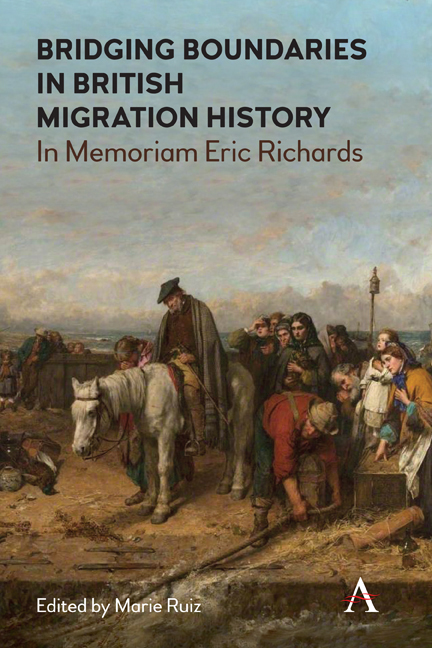Chapter 6 - British Colonial Migration in the Nineteenth Century: The Short Route
Published online by Cambridge University Press: 20 January 2022
Summary
This chapter is in the nature of a ‘work in progress’, although, as explained towards the end, further progress on it will need to be pursued by others. It is based on a considerable amount of reading and research, done about 20 years ago, on the topic of Britons’ informal – that is, excluding official and diplomatic – relations with Continental Europe, originally undertaken with a view to writing a book on the subject, which unfortunately never came to pass – other projects diverted me – except in the form of a couple of articles bearing on aspects of it, which are cited in the endnotes. Although the material on which the chapter is based is extensive, it is not sufficient to justify some of the generalizations I should have liked to explore, if I had had the time. That is why I stopped. By publishing my provisional conclusions in this present form, however, I thought I might stimulate interest in the topic, and hence encourage further work. Some of that work may well challenge my own ideas on it, which, as an empirical and self-critical historian, of course, I would not take amiss.
The idea of treating Britons’ forays into the Continent as a form of colonialism came to me slowly during a career of researching and writing about their activities in the wider world, which are what the term colonialism is conventionally applied to. I realized, firstly, that there were similarities between the two – colonialism afar and nearby; secondly, that the European area of British colonialism had not been covered by historians in the same detail or depth as Britain's ‘overseas’ – or Irish – expansion; and thirdly, that this neglect had deprived historians of one area of context, which might shed some light on the others. What that light may be I’ll leave others to judge.
John Everett Millais's famous painting The Boyhood of Raleigh (1871), accessible on Google Images, shows the young Walter Raleigh in wrapt attention on a Devonshire beach as an old sea dog regales him and his pal with tales of opportunities and adventures overseas. We assume he is pointing to the West, because that's where Raleigh later earned his fame.
- Type
- Chapter
- Information
- Bridging Boundaries in British Migration HistoryIn Memoriam Eric Richards, pp. 123 - 138Publisher: Anthem PressPrint publication year: 2020



